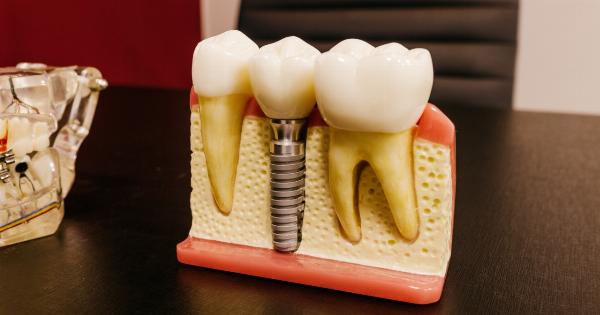Chronic Appearance of Apes in the Oral Cavity: A Red Flag for Health Concerns.
Understanding the Oral Cavity
The oral cavity, also known as the mouth, is a complex part of the human body that plays a crucial role in various functions such as speech, taste, and digestion.
It consists of different structures including the teeth, gums, tongue, and inner lining, all of which work together to facilitate proper oral health.
The Role of Apes in Oral Health
Apes, commonly referred to as apthous ulcers or canker sores, are small, shallow ulcers that appear on the inside of the mouth. They are typically round or oval in shape with a white or yellowish center and a red outer ring.
While they are not contagious or harmful by themselves, their chronic appearance can be indicative of underlying health concerns.
Possible Causes of Chronic Apes in the Oral Cavity
1. Stress: Chronic stress can weaken the immune system, making individuals more susceptible to developing apes in the oral cavity. Stress-induced hormonal changes can also contribute to the occurrence of apthous ulcers.
2. Nutritional Deficiencies: Deficiencies in essential vitamins and minerals, such as iron, zinc, and vitamin B12, can lead to a weakened immune system and oral health issues, including apes.
3. Allergies and Food Sensitivities: Certain foods, such as chocolate, nuts, and acidic fruits, can trigger apes in individuals with allergies or sensitivities.
Additionally, certain toothpaste ingredients can cause allergic reactions leading to apthous ulcers.
4. Hormonal Changes: Fluctuations in hormone levels, particularly during menstruation, can increase the likelihood of apes in some individuals.
5. Autoimmune Disorders: Conditions like Crohn’s disease, celiac disease, and Behçet’s syndrome, which affect the immune system, can lead to chronic apes in the oral cavity.
6. Poor Oral Hygiene: Inadequate oral hygiene practices, such as infrequent brushing and flossing, can create a breeding ground for bacteria, increasing the risk of apthous ulcers.
Diagnosing Chronic Apes
If apes persist for more than two weeks or recur frequently, it is essential to consult a healthcare professional.
They will conduct a thorough examination of the oral cavity and ask about medical history to determine potential underlying causes such as deficiencies, allergies, or autoimmune disorders.
Treatment and Management
While there is no cure for apthous ulcers, several strategies can help manage symptoms and prevent their occurrence, including:.
1. Topical Medications: Over-the-counter gels, creams, or mouthwashes containing ingredients like benzocaine, hydrocortisone, or lidocaine can provide temporary relief from pain and discomfort associated with apes.
2. Oral Rinses: Homemade or prescribed mouth rinses with ingredients like saltwater, baking soda, or hydrogen peroxide can help reduce swelling and promote healing.
3. Dietary Changes: Avoiding triggers such as spicy or acidic foods, as well as maintaining a balanced diet rich in vitamins and minerals, can contribute to reducing the frequency of apes.
4. Stress Management Techniques: Practicing relaxation techniques, engaging in regular exercise, and seeking support for stress management can help minimize the occurrence of apes associated with stress.
5. Good Oral Hygiene Practices: Brushing teeth twice a day, using a soft-bristled toothbrush, and regularly flossing can maintain oral health and prevent the development of apthous ulcers.
When to Seek Medical Attention
While most apes heal on their own within a couple of weeks, certain symptoms warrant immediate medical attention. Individuals should consult a healthcare professional if they experience:.
1. Severe pain that persists despite home remedies.
2. Difficulty in drinking, eating, or speaking due to the presence of apes.
3. High fever or swollen lymph nodes accompanying the apthous ulcers.
4. Rapidly spreading ulcers or new ulcers appearing before the previous ones have healed.
Conclusion
Chronic appearance of apes in the oral cavity can be a red flag for underlying health concerns.
While most apthous ulcers are harmless and resolve on their own, persistent or recurrent apes may indicate deficiencies, allergies, autoimmune disorders, stress, or poor oral hygiene. Seeking professional advice and adopting appropriate treatment and management strategies can alleviate discomfort and promote oral health.































